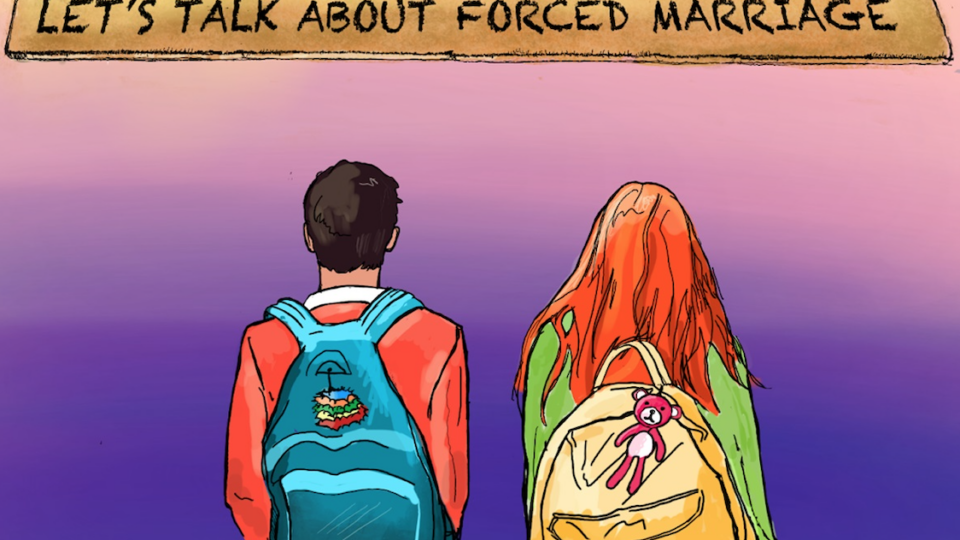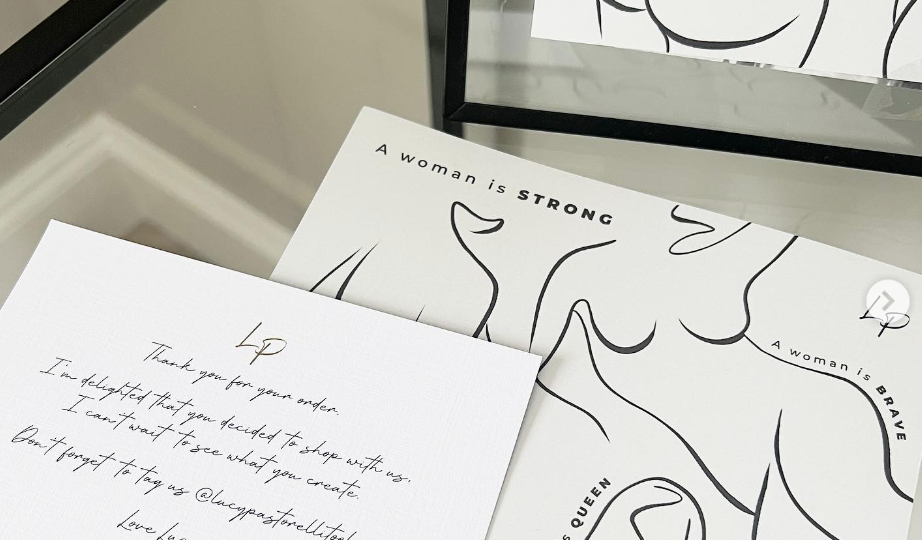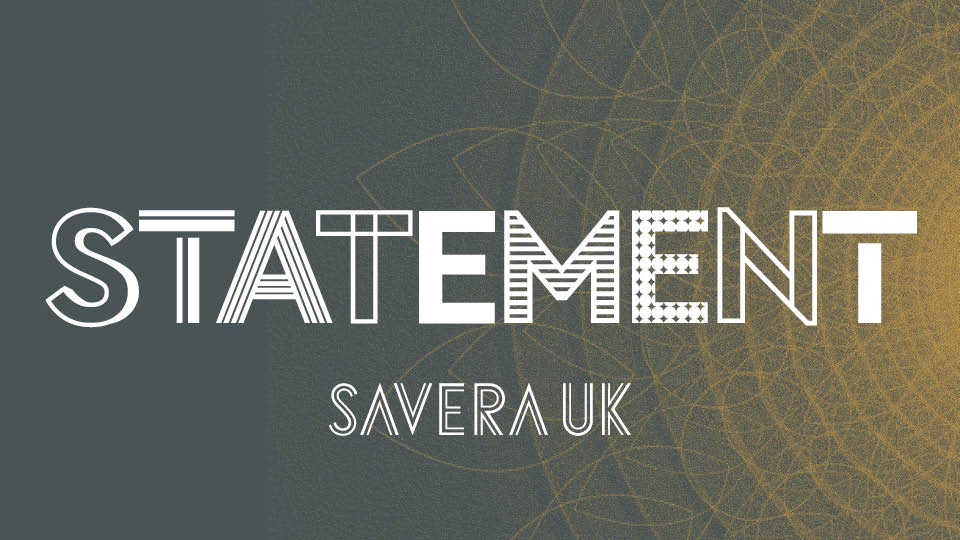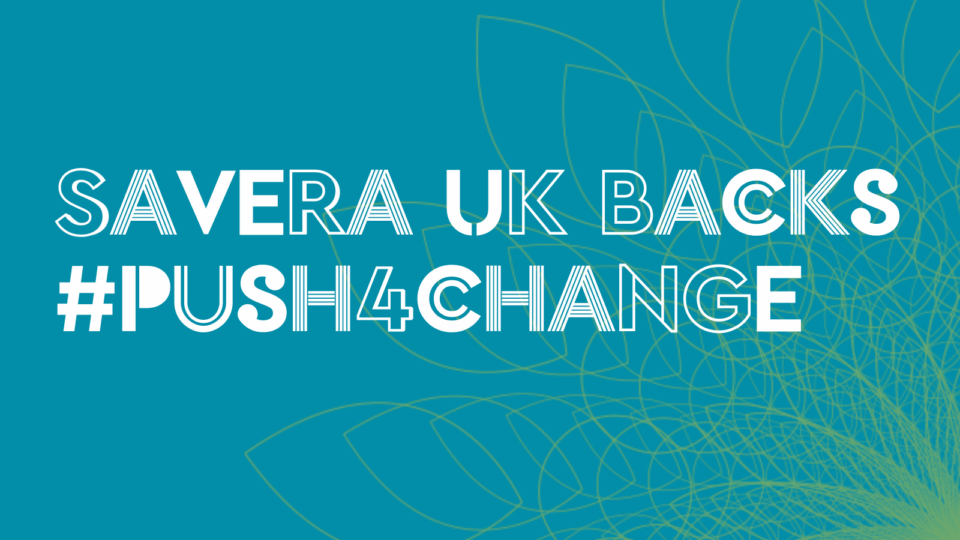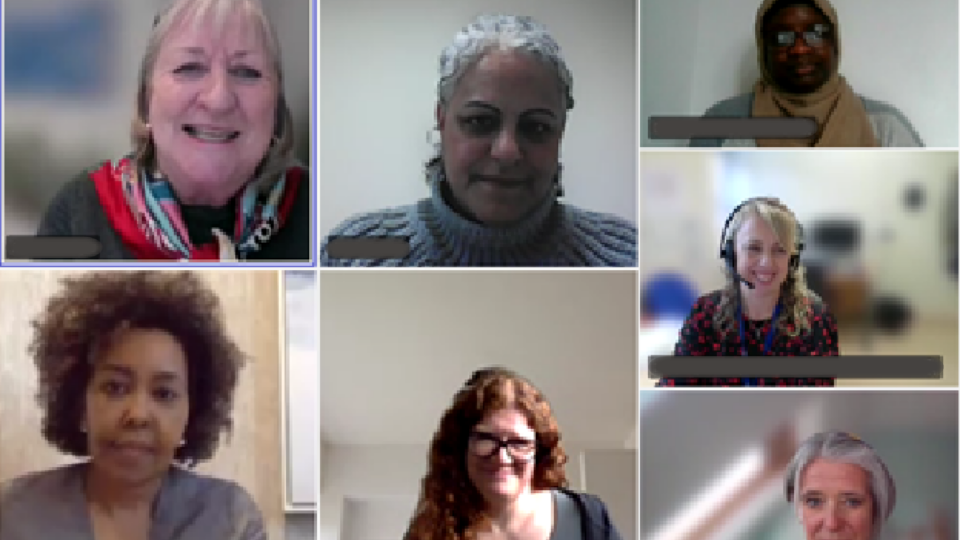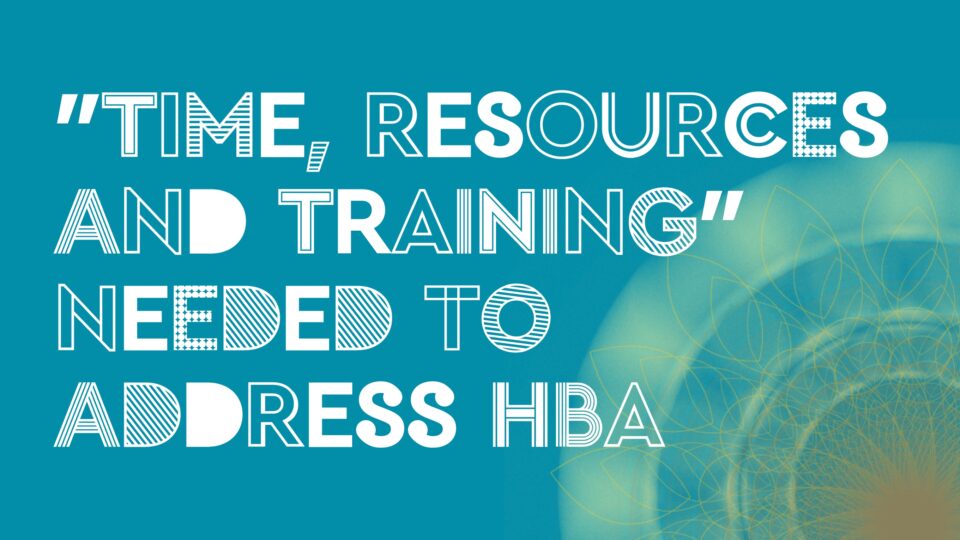Interaction with frontline healthcare professionals is sometimes the very first-time survivors of female genital mutilation (FGM) become aware of the practice and that they have been subjected to it, due to lack of understanding around the practice or the type of FGM they have had.
For those who are aware they have been through FGM, it is not only vital that healthcare professionals have knowledge of the practice and its health impacts, they also need to have the confidence and willingness to talk openly about it with patients.
However, many health professionals say they lack the confidence to do this.
On Tuesday 6th February, 2024, to mark the International Day of Zero Tolerance for FGM, Savera UK and Oxford Against Cutting, brought together FGM survivors Babs Ceesay and Khatra Paterson, and a group of healthcare professionals for an online discussion about the responsibilities of healthcare professionals in responding to FGM, the challenges they face and how specialist organisations and health professionals can collaborate to equip health professionals to know how to respond appropriately and help survivors.
Event chair, Aislinn O’Dwyer, Chair of Savera UK’s Board of Directors and East Cheshire NHS Trust, opened the event, which was attended by almost 200 health professionals, with an interactive question: “What one word comes to mind when you think of FGM?”
The resulting word cloud saw words such as ‘pain’, ‘trauma’, ‘barbaric’ and ‘abuse’ as most prominent. In an overview of the practice of FGM and an introduction to the work Savera UK does to help end it, charity CEO and founder, Afrah Qassim touched on some of these themes and highlighted shocking key statistics around FGM: 200 million women and girls have been subjected to the practice globally, with approximately 137,000 women in England and Wales living with its consequences.
Afrah said: “It’s important to know the scale of the issue and to understand that these are just estimates, we don’t know the real figures. These are huge numbers, and it could actually be more. There are so many health implications [of FGM] which is why we need our health professionals to understand their responsibilities and be really equipped to help those at risk or who have already experienced FGM.”
Afrah went on to give an overview of what FGM is and its health implications, as well as its function as a “self-enforcing social convention” in some communities. Despite some connecting the practice with particular cultures or religions, Afrah highlighted that FGM is no part of any culture or religion, but rather a form of abuse and illegal in the UK.
She said: “Sadly many families and individuals believe that if they don’t respect those perceived social conventions, they will suffer social consequences. This is why we need more community engagement, more education and encourage more education to break those beliefs.”
Before introducing FGM survivors Babs Ceesay and Khatra Paterson, Aislinn posed a second question to the audience of health professionals, asking: “In your work/role are you confident to ask patients a question or start the conversation about FGM?”
The poll revealed that while 14 per cent said they were very confident, 53 per cent said they were only fairly confident – with ‘fairly confident’ being a broad measure open to different interpretations – and 33 per cent stated they were not confident at all.
Aislinn said: “This supports our reason for using this event to start that educational process, take the not confident at all to the fairly confident, and at least know where to get help, and the fairly confident to build skills to be able to have an open and honest discussion in a way that both you and the individuals [in your care] are happy with.”
FGM survivor perspective: “It is out of love”
Reflecting on those confidence levels, Babs Ceesay, a community nurse, FGM survivor ambassador for Savera UK and an Anti-FGM Facilitator for Oxford Against Cutting, introduced her perspective as an FGM survivor.
Babs said: “Whenever you mention FGM you have that silence in the room for a minute, because people are not confident about asking the questions, or even if they are confident about starting it, they don’t know how to go about it without being judgemental. When I talk about FGM people are like ‘oh that’s cruel, ‘oh that’s bad’ and ‘who would do that to their daughter?’”
Referring to the history of FGM in the UK, she highlighted that a long time before the practice became illegal in the UK in 1985, back in the 1860s, it was undertaken by medical professionals, including Dr Issac Baker Brown, who believed that cutting women resolved certain mental health issues. They believed that this practice was helping women. As knowledge developed, though, it was realised that the procedure was in fact seriously harming women and was subsequently banned – something that has unfortunately not happened in all parts of the world.
Drawing parallels between these 19th century medical professionals, and parents and communities from non-medical backgrounds who continue to believe in the practice, Babs said: “Think about why our parents would do this. It is out of love. It’s not out of hatred or because they didn’t like us. From the culture that I came from, if you don’t go through FGM you cannot fit in in the society, you cannot get married, you cannot do any misstep without being insulted – no parent wants that for their child. So, you need to understand that perspective.
“As a survivor, we don’t need that judgement, we need help. Even if you say, ‘ok I want to help’ but your expression or the words you say are showing me that you are judging me; that you are judging my parents, then I won’t want to listen to you.”
Babs highlighted specifically the harm and upset caused by the raising of safeguarding issues by a midwife at her first appointment pregnancy. The implication being that if she had a girl, that girl would be at risk because Babs had been cut herself.
Babs said: “This was said to me, and it hurts me to think about it. I don’t want anybody to think that I would put my children in the same position that I was in, [to experience] the same issues that I am still suffering from.
“I always tell people who are thinking along these lines, you shouldn’t assume that everyone who has been through FGM knows about FGM.
“The first time that they might know about it is when they go for their cervical screening or when they are pregnant. Either way, it is when they access healthcare. Some will know [about the FGM] from childhood but won’t know about how FGM affects them.
“With that being the case. If someone comes and you notice that this person has been through FGM, and you didn’t say anything to them, you just do your part and let them go, they won’t know what’s in the future for them, they won’t know what to expect. I didn’t know what to expect during childbirth and it was horrible at the end.
“If I’d had that education from the beginning, if someone had said to me ‘oh you’ve been through FGM. What do you know about FGM?’ It’s a simple question that you can ask a survivor – ‘what do you know about FGM?’ Listen to them, allow them to tell you what they know about FGM, and you’d be surprised.
“About 85 – 90 per cent of survivors don’t know anything because in their society they are told that’s the norm – the pain, the suffering, all the problems that come with FGM, they are told that its part of life. It’s not. As healthcare professionals, we need to have these questions in us. We need to think about the perspective of the survivor.”
Babs explained how – as a survivor whose records show she has had FGM – knowing that her healthcare professional knew about FGM, was willing to open the discussion and acknowledge that having something as simple as a cervical smear could be traumatic, would give her reassurance and help her to relax.
She said: “This would help so many people be able to access important healthcare.”
FGM: Not Cultural or Tradition
Fellow FGM survivor, Khatra Paterson, a business owner with a passion for women’s health and wellbeing, and 32 years’ experience as a nurse, midwife and health visitor, shared how her mum also practiced FGM out of love and a wish to secure her future.
Khatra said: “If my mum had her opportunity again now, today, she would not go through with what she did to me and my sisters. And why is that? That is because of education. I have educated her in the misconceptions and beliefs that go alongside why FGM should be perpetuated.
“Culture is beautiful. I am a British Somali girl, but FGM is not cultural or tradition. It is child abuse and that is how we need to think of it. I noticed in the first word cloud FGM brought the word ‘cultural’ to mind and we need to get away from that.
“I have two boys and when I was with my first child, I was a midwife, and during my booking process all the way through to delivery, no-one had asked me if I had gone through FGM, and it was evident that I had gone through FGM
“I think it’s really important, very early on – particularly at the booking process – that we identify women who have gone thorough FGM, and we shouldn’t look at a particular ethnic group, we should be asking everyone as a matter of course.”
Speaking about the process of change in health services, Khatra recalled her discomfort early in her career when professionals started being required to ask patients about domestic violence and mental health issues.
She said: “Now it’s the norm, and it becomes the norm because we repeat it, it becomes our repertoire, it’s part of our assessment, it’s down on our booking form. FGM equally needs to be in the booking system and on our screening criteria as well.”
Khatra reflected on the results of the poll around confidence addressing FGM in the workplace and posed the question “why are we not feeling so confident about screening women and talking about FGM?”
Potential issues suggested were issues with training, lack of identification of referral pathways or protocols within organisations, inadequate risk assessment tools, an absence of a dedicated FGM lead or multidisciplinary team specifically for FGM, all of which could improve knowledge and confidence of they were in place and prioritised.
Echoing Babs sentiment on the needs of survivors, Khatra said: “We don’t need to be judged, we need to be treated with kindness and sensitivity. Some of these ladies will think it is normal to be this way, so you are going to be unearthing a lot of psychological trauma.”
Resources for Professionals
After Babs and Khatra’s inspirational contributions to the discussion, Aislinn invited Bryony Kendall, Named GP for safeguarding for NHS Cheshire and Merseyside, and the North West representative to the NHS England National Network of Named GPs, and Dr Sharon Dixon GP Partner, researcher, and Trustee of Oxford Against Cutting, to share both their experiences of managing FGM in a GP setting, and the work that they had undertaken to develop resources for professionals.
Sharon started their presentation by recommending Hibo Wadere’s book, Cut. She referenced an impactful part of Hibo’s story when she first goes to a GP and has a positive experience.
Sharon said: “We – rightly – in health, often reflect on things where we can learn from what didn’t go as well, or that could have been done better. But sometimes it’s nice to learn from things that have been done well.
“She [Hibo] has said for our module for GPs that professionals need to hold their knowledge in one hand and your humanity and compassion in the other, and I find that comforting when we are trying to navigate these quite complicated questions.”
Sharon’s work developed from recent policy changes in FGM. In partnership with advocacy organisations, they have undertaken public and patient involvement work towards setting priorities in research and service development.
In this project, they heard many things including messages that FGM was part of lives, that there was a need for it to be embedded in a positive representation of culture, and that it was only one part of people and did not define them.
The work also highlighted uncertainties about what safe spaces in healthcare looked like, and how they should be maintained, or how you could create trust and safety. Common to the threads of discussion earlier in the event, those involved had also talked about breaking stereotypes and not making assumptions.
Sharon said: “The overarching conclusion was that resources, solutions and change needed to develop from communities upwards to professionals and authority.”
Taking a life course approach to FGM
The resource for general practice developed by Bryony and Sharon takes a life course approach, considering the potential health needs in different parts of peoples’ lives and how they could be better supported. This not only included areas where resources and services are often focussed, such as antenatal and postnatal care, but also other areas that may be less considered, such as how FGM might affect a child, what it might be like for a teenager starting their period and if that might be triggering, preparation for sex and intimacy and accessing contraception and managing the menopause with FGM, when there is thinning of the genital skin that can aggravate pain and also urine infections.
Speaking of acknowledging the impact of FGM at various life stages, Sharon said: “We often don’t ask because they’re not pregnant, or we’re not seeing them in that way and we’re developing a cohort of people who we’ve been able to support by just thinking about it in that time period.
“There are also some needs that maybe arc across the life course, and you want to be keeping the door open and thinking about how you can be making sure you know local resources and creating opportunities to ask about support, across all life stages. That includes psychological support, psychosexual support to address potential psychosexual and relationship impacts.
“But FGM is many things to many people, everyone’s experience is unique. So, open conversations in exploratory ways, but not making assumptions about the person in front of you.”
Sharon went on to share their Talking about FGM resource, which derived from a series of conversations with community members, advocates and survivors about what they wanted GPs and their practices, as well as other health professionals, to know.
The top thing that they wanted health professionals to know was that they are survivors and not criminals, which reflected Babs’ earlier comments on assumptions that just because she has been cut, does not mean that she would do the same to her child.
They asked professionals to think about where they are having conversations, who else is in the room, and planning and giving due warning in a trauma-informed way, so that they have choice, control and autonomy about how these conversations happen. They also provided advice on approaching physical examinations, including smears, while finally highlighting the importance of the professional responsibility to be knowledgeable, prepared and ready to support.
Talking about FGM
Speaking of development of the Talking About FGM resource, Bryony said: “This was an amazing piece of work, co-produced from the beginning and with a great mix of lived and learned experience, and we really tried to frame it in a positive way. Rather than saying ‘don’t do this’, saying ‘do this’.”
She then introduced another co-produced resources, the ‘easy read document’, which was developed in response to a lack of easy to read resources on FGM and a sort video on smear guidance from the NHS Futures website.
Finally, Bryony shared the FGM Learning Resource for GPs that she and Sharon co-produced, which among other resources features powerful audio of Hibo reading from her book.
Of the resource, Bryony said: “It is very constructively educational about how to do this, what would you do as a GP thinking about the life course, being aware that you have difficult conversations all the time and these are transferable skills, and if you feel uncomfortable do some reflections and learning to see how you can make it a better experience for the next patient, next time.”
Nicola Biggar, Head of Midwifery, Women’s and Children’s Services for East Cheshire NHS Trust, rounded off the event by turning to look at where health professionals can go from here and what adjustments they can make to their practice.
Nicola said: “For me it’s the next steps – what do we need to do to make a difference now? It’s equipping yourself with information, knowing what kind of conversation we need to be having, so using the information Sharon and Bryony have just provided us with. It’s not rocket science; it’s just having a fresh pair of eyes and reflecting on our own practice and how we can make those changes.
“Not panicking ‘this is a safeguarding’ issue and listening intently, understand, instil confidence, ask how that woman feels, what does she need? And take it from there, don’t panic and be present in that moment.
“It’s knowing that you have that built-up rapport, that they can trust somebody, that they can escalate concerns, they have that confidence in you. It’s about going and checking your practices and policies and pathways, what have you got in place? Is it fit for purpose? Even the referral process with Savera UK, it’s now checking to make sure what we can all do to give that real wrap-around support for those women.”
Nicola’s forward-looking conclusion brought the event to its final interactive element, where attendees were asked to submit a word or few words to summarise the one thing that they would take from the session and make it part of their work.
The words “compassion” and “humanity” were among the most popular responses, along with “confidence”, “don’t make assumptions” and various phases indicating the importance of knowing what resources were available, where help was available and better signposting. The phrase “born of love” also made several appearances, highlighting the impact that the perspective of FGM survivors Khatra and Babs had on the audience.
New perspectives on FGM
Speaking after the event, Savera UK CEO and founder, Afrah, said: “This event was incredibly powerful and enlightening. From just one session, almost 200 professionals have taken away new perspectives on FGM and a wealth of resources that that will help to inform and improve their practice. There is a clear need for more work and greater support in this area and we look forward to working with our panel, partners and attendees collaboratively through future events and campaigns.”
Savera UK and Oxford Against Cutting will be continuing their work in the field of educating, training and equipping healthcare professionals to respond appropriately and effectively to cases of FGM, with future sessions planned.
To find out about these events first, sign up to the Savera UK’s newsletter here and the Oxford Against Cutting newsletter here. You can also find more resources about FGM, HBA and harmful practices on the Savera UK Learning Hub, and Oxford Against Cutting website. Information on Savera’s training is here and Oxford Against Cutting’s workshops can be found here.

